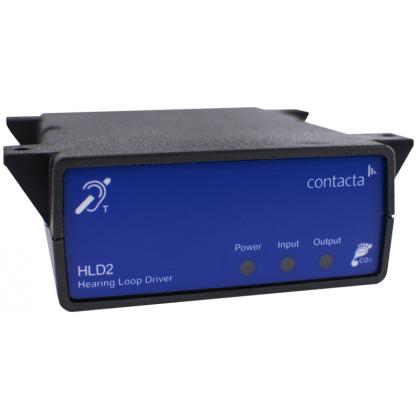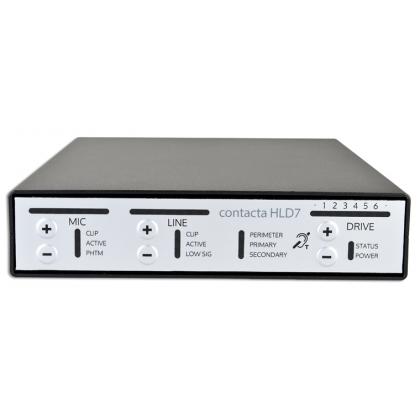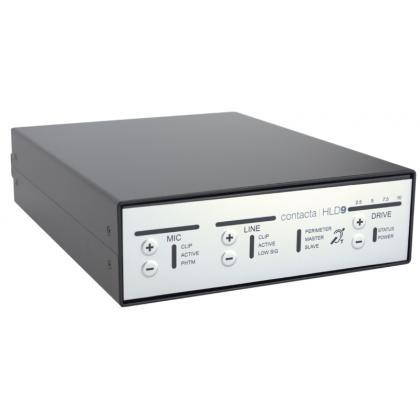What are the different Assistive Listening Systems?
HowToAV talks to Assistive Listening expert Per Persson of Williams AV to discuss the benefits of ALDs and how to choose the right technology for users' needs.
Assistive Listening Systems - also referred to as ALDs (Assistive Listening Devices) help to improve the sound quality & clarity of reproduced sound (such as a PA systems, voice reinforcement, audio messaging, TV audio, etc) for many people with degrees of hearing impairment.
Though the most common system - Audio Frequency Induction Loop Systems (or AFILS) - may be well known to many users and installers, there is an increasing range of alternative technologies and transmission options available to support assistive listening in different applications and building types.
Why do we need Assistive Listening Systems?
To comply with the BS 8300 Code of Practice, Assistive Listening Systems are legally required in any public place so that hearing impaired members are given the same opportunities to hear messages, voice, or any other required sound as clearly as possible.
What are the different types of assistive listening technologies?
There are three main assistive listening technologies:
• RF
• Audio induction loops
• Infra-red
Each of these different technologies tend to suit specific applications, due to their differing characteristics.
What is an RF Assistive Listening Systems?
RF assistive listening systems provide sound reinforcement to hard-of-hearing persons with, or without hearing aids.
How does an RF Assistive Listening System work?
In an RF assistive listening system, the sound is transmitted via radio frequency to a receiver and headphones. It may also deliver the sound directly to a receiver connected to a cochlear implant or telecoil hearing aid. An RF system can be used in both small or large spaces, however it is not ideal where privacy is necessary as the signal isn’t contained unlike an IR system. This low-cost system is mostly used in: classrooms, public meeting spaces, churches, conference rooms, and nursing homes.
What are Infrared Assistive Listening Systems?
Infrared Assistive Listening Systems are an audio technology with supports improved hearing and communication for people with a hearing impairment.
How does an Infrared Assistive Listening System work?
Infrared assistive listening systems work by converting an audio source into infrared light; this is then transmitted to users via an infrared signal. The infrared receivers (which are worn by users) then convert this light back into audio, this provides a clear and simple listening experience for hearing impaired audience members.
IR systems are ideal for when a sound source needs transmitting to multiple receivers, and for when confidentiality is required in small spaces or when ambient noise needs reducing.
What is an Induction Loop System?
Audio Induction Loops; sometimes also referred to as Hearing Loops, Audio Frequency Induction Loops or AFILS, offer an assistive listening system for people affected by forms of hearing impairment, particularly those who use a hearing aid or cochlear implant.
Hearing loops or assistive listening technologies are installed in lots of locations around the world as they provide communication for those living with hearing loss by sending sound sources directly and cutting out background noise.
How does a Hearing Induction Loop system work?
A hearing loop or induction loop works by providing a direct link to a sound source for example a microphone, television or sound system. The sound is picked up by a microphone, which is then converted to a magnetic signal by amplifier this is then transmitted towards a user via hearing loop aerial. The magnetic signal is picked up by the Telecoil within a users hearing device this means the user will then be able to hear with clarity.
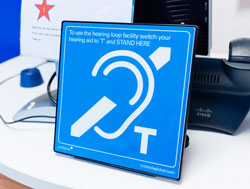 How do you know when an assistive listening system is installed?
How do you know when an assistive listening system is installed?
As part of the BS 8300 code of practice; it is essential to have signage to point out that assistive listening systems are installed as it gives clear directions, information and instruction.
What are the benefits of assistive listening systems?
The benefits of assistive listening systems are not just for the user themselves, it also benefits the buildings and businesses that install the systems. The benefits include:
- Improves communication therefore expands customer engagement
- Fulfils legal requirements - BS 8300 code of practice
- Provides inclusivity which makes people feel understood/ supported
- Enhances the customers experience
- Attracts new customers
- Encourages loyalty and makes you stand out amongst competitor brands
What are the different types of induction loops?
There are three main types of hearing induction loops; one-to-one, integrated and large area loops. The type of induction loop used depends mainly on the environment in which the loop system is installed in.
One-to-One Hearing Induction Loops
one-to-one hearing induction loops are used in a variety of places such as bank counters, supermarket checkouts and ticket offices. They are mostly used to assist in situations where conversations between two people take place, it can be a portable or fixed solution.
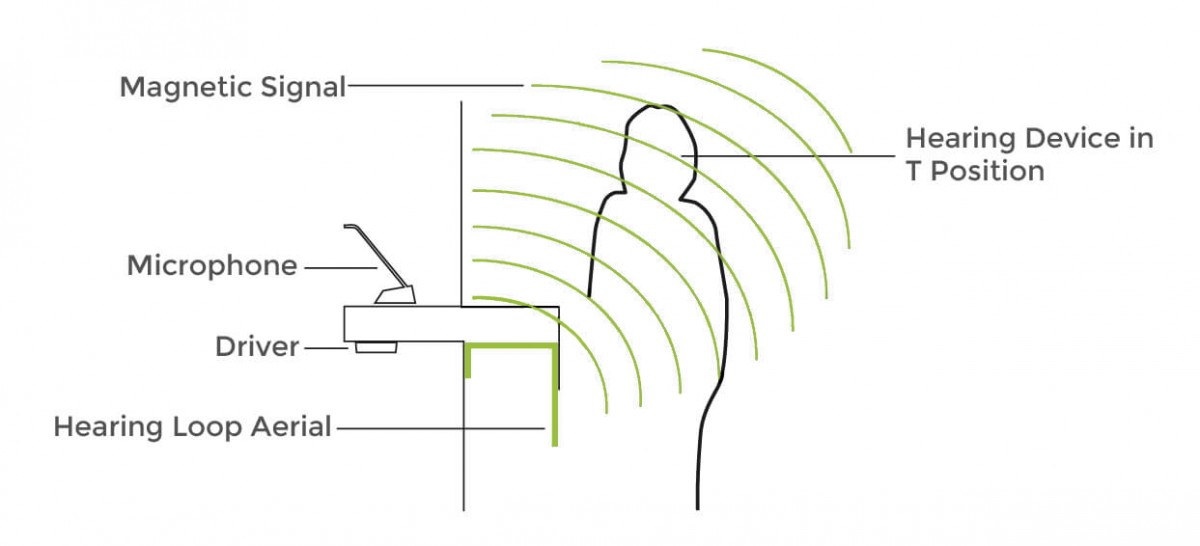
Integrated Hearing Loops
Integrated hearing induction loops are used in systems such as; door entry intercoms, ticket machines and supermarket checkouts. They allow for a variety of automated machines to provide audio instruction to people with hearing loss.
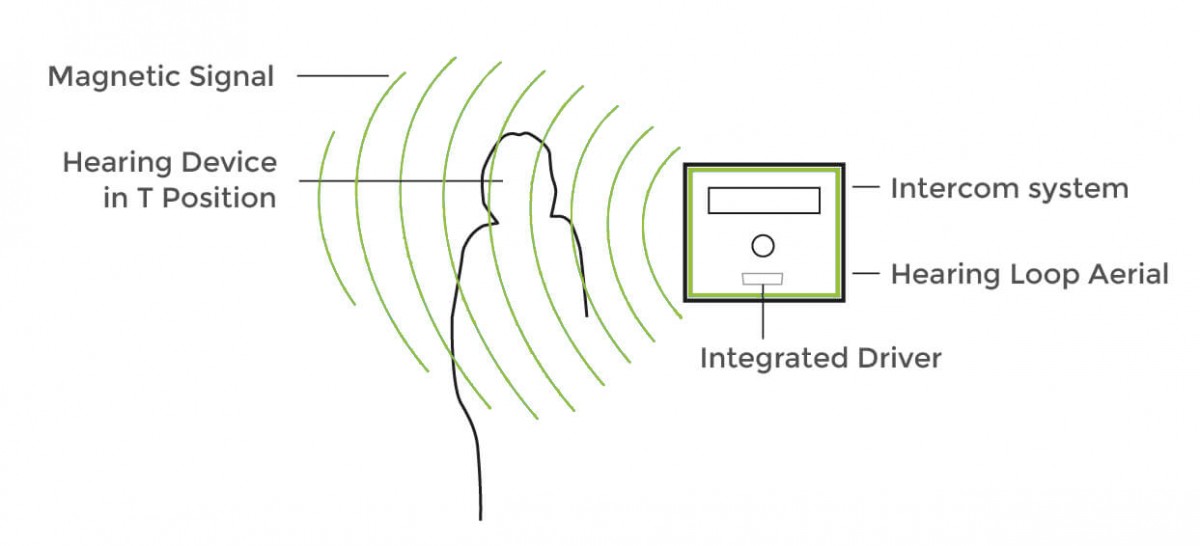
Large Area Hearing Loops
Large area hearing induction loops are used in environments where large numbers of people can benefit from a high quality listening experience for example in classrooms, conference centres and theatres.
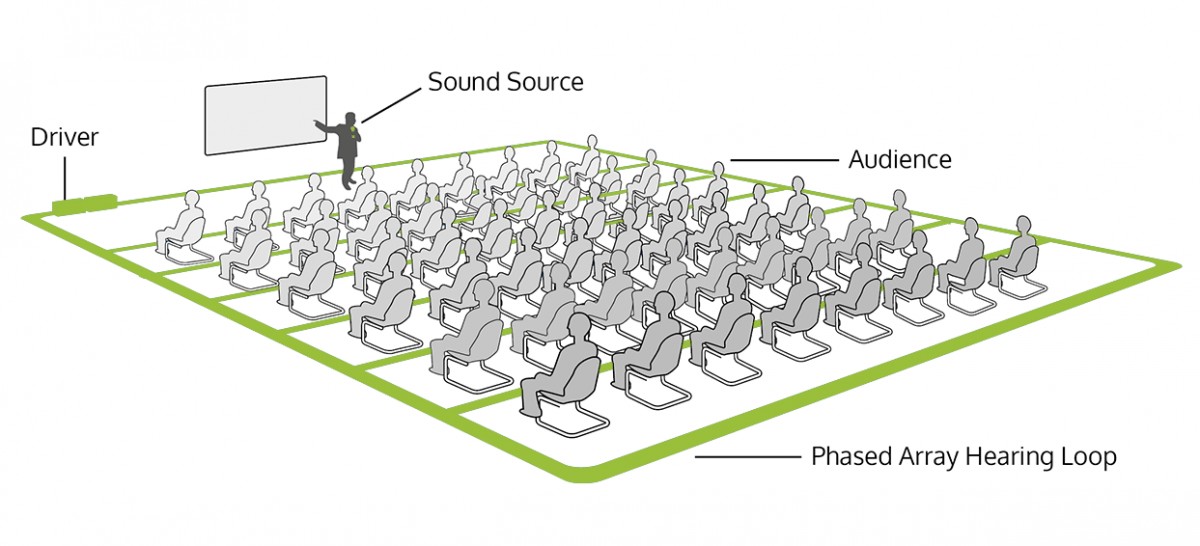
Find out more...
Need help planning your next assistive listening system?
CIE is one of the UK's leading and most innovative professional AV distributors and is a leading provider of Induction Loops and Assistive Listening Technology Systems.
With over 50 years experience in supply and system design for many of the UK's largest, high profile audio projects, our AV experts provide a unique level of technical support and customer service.
Call the CIE AV experts now on T. 0115 9770075 or email us at [email protected]


